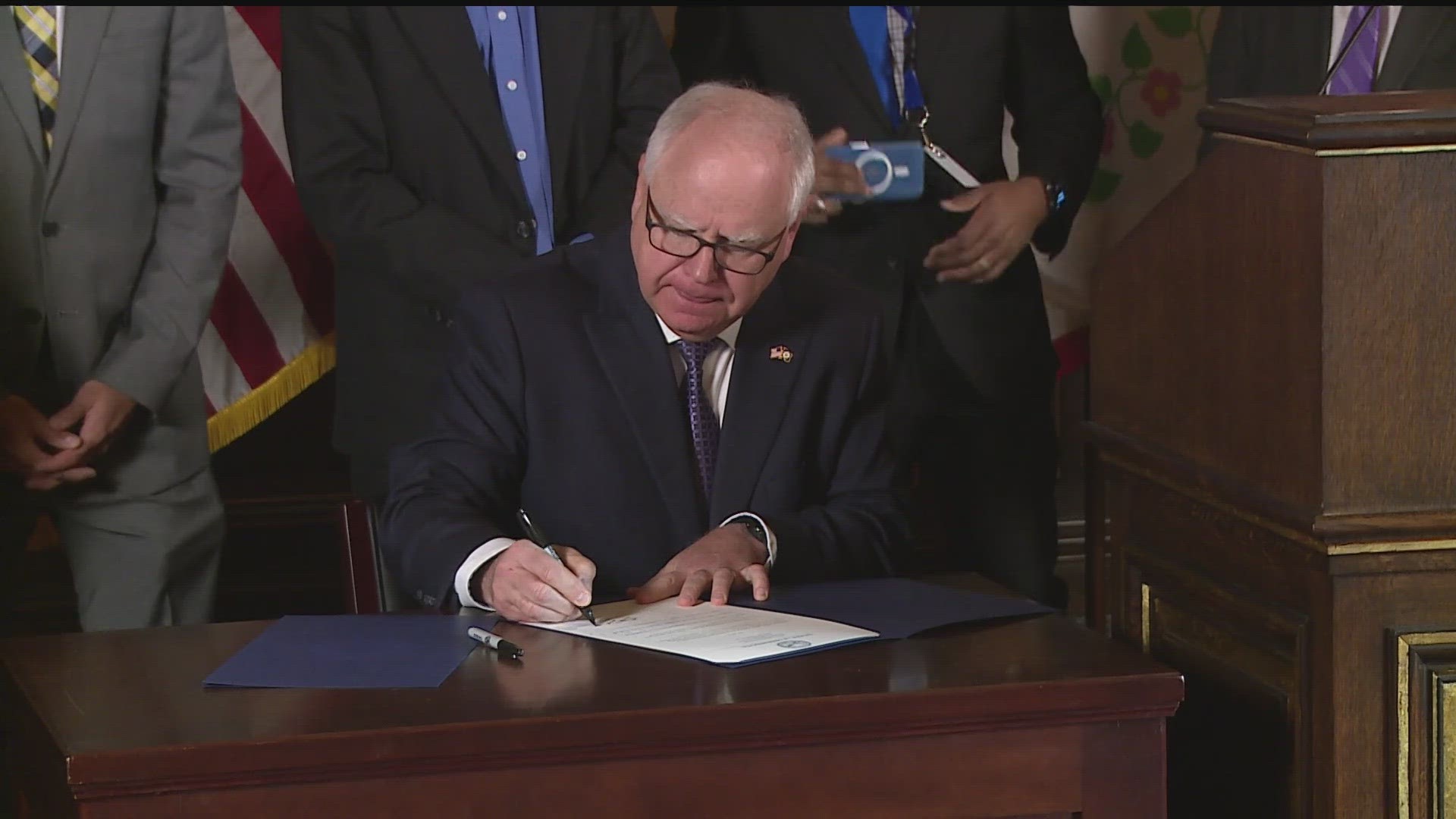ST PAUL, Minn. — Gov. Tim Walz Tuesday signed a piece of legislation that should make it harder to sell stolen catalytic converters in Minnesota. In fact, it will make it a crime to possess a detached converter that's not properly marked.
It comes at a time when law enforcement, prosecutors, insurance companies and motorists are at wits end over a meteoric rise in thefts fueled by the market for reclaimed precious metals — platinum, palladium, rhodium — found inside those exhaust components.
"The large amount of money they receive from recycling these. They've learned that it takes literally two minutes to pull up to a car with a sawzall and take off the catalytic converter," West St. Paul Police Chief Brian Sturgeon told reporters at the bill signing ceremony.
He said in his community there has been a 700% jump in cat converter thefts, and that social media has given thieves a platform to share tactics with other would-be thieves. Replacing a stolen converter can cost as much as $3,000 depending on the model of car, and can sideline drivers for weeks as they wait for the replacement part to arrive.
Currently, officers lack probable cause to arrest someone found with multiple catalytic converters in their vehicles. Under the new law, which takes effect in August, it will be a crime to be in possession of a detached cat converter unless it has a Vehicle Identification Number, or VIN, that can be traced to the car where it originated.
"We've had law enforcement reports around the state where they'll stop a car with four or five cut-off converters in the back seat, and they have no probable cause to stop them," Sen. John Marty, the Roseville Democrat who served as chief author of the bill in the Senate, explained.
"Now, in Minnesota it will be a crime August 1 to possess a used catalytic converter that's not attached to a car unless it has the vehicle identification number written on it."
The new law will also require scrap metal dealers to enter all catalytic converter sales transactions into a new database operated by the Bureau of Criminal Apprehension, so that investigators can track which customers are selling an inordinate number of catalytic converters.
It's expected that exhaust repair companies would sell a lot of those parts, but law enforcement will now be able to look for patterns that would point to professional cat converter thieves.
"This will be a database that will be able to enter in catalytic converters as they're purchased, and that will be available to all of Minnesota law enforcement so they can see who's selling these, who's purchasing them," BCA Superintendent Drew Evans told reporters.
Rep. Cedrick Frazier appeared on behalf of Rep. Ruth Richardson of Mendota Heights, the lead author of the bill in the House, who wasn't able to attend the signing ceremony.
"I know this has been a major issue in her community, and it's also been a large problem in my community," Rep. Frazier, a Crystal Democrat, said.
By some estimates, Minnesota ranks third in the nation in the number of cat converter thefts, behind only the much larger states of Texas and California.
Some lobbyists cautioned that such a law would lead the catalytic converter thieves to take the parts to buyers in other states, to evade Minnesota's law. But Evans said he believes this will make a dent.
If other states follow Minnesota's lead, it could remove all the re-sale options for the thieves.

